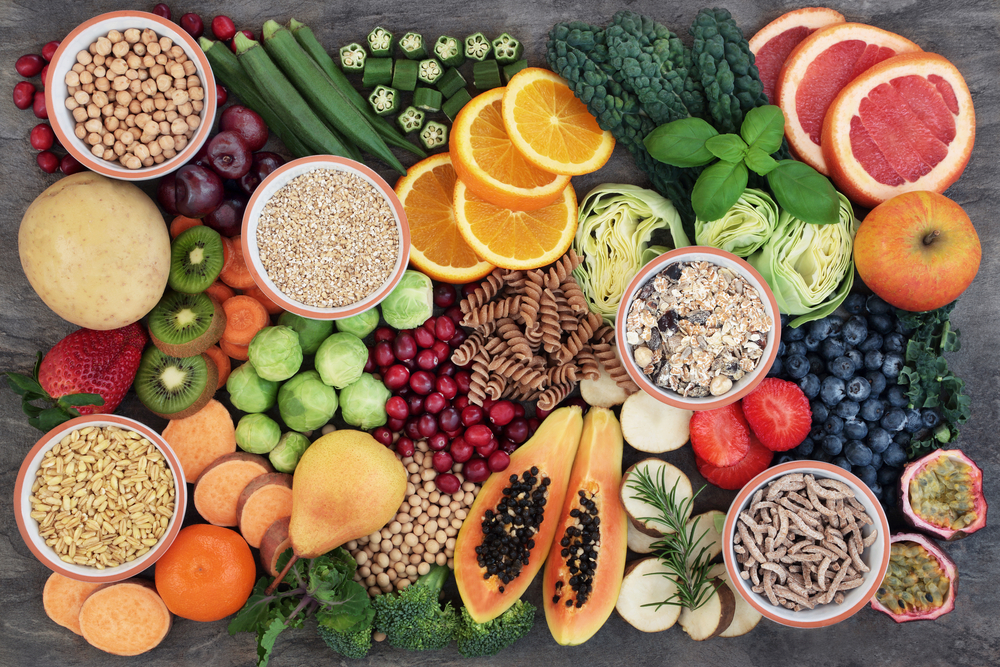Carbohydrate Intolerance: Symptoms to Look for and Ways to Combat

Carbohydrates are one of the three core macronutrients providing the body with energy. Our body breaks down carbohydrates from food into sugars (also called saccharides). There are three main types of carbohydrates, including starches (complex carbs), sugars (simple carbs), and fiber. Simple and complex carbs are broken down into sugars, while fiber is not digested. The ability of our body to break down starches and sugars doesn’t always work efficiently for everyone, and can lead to carbohydrate intolerance. In fact, the ability for us to effectively metabolize carbohydrates largely depends on a range of factors, from our genetic makeup to how much exercise and sleep we get on a daily basis.
Carbohydrate intolerance is the inability of the small intestine to efficiently break down certain carbohydrates after digestion to be used as a source of energy for the body. If you’ve ever felt bloated, fatigued, or crave sugary foods after a meal (even though you’re seemingly eating “the right foods”), it could be due to an inability of your body to effectively break down carbohydrates. Lactose intolerance is one of the most common forms of carbohydrate intolerance. This occurs when the enzyme that is required to digest lactose (the sugar found in milk and various dairy products) is not readily produced in the body, leading to symptoms of cramping or bloating. When carbs aren’t broken down effectively, they can end up undigested in the stomach or colon. This leads to fermentation by the gut bacteria, which lets off gas and causes the stomach to bloat.
Additionally, when your body cannot digest carbs effectively, hyperinsulinemia or insulin resistance can occur, which leads to increased blood sugar levels over time. This can cause heightened feelings of fatigue and constant cravings for sweet foods due to large spikes and decreases in blood sugars. Carbohydrate intolerance causes your body to crave sweet foods more regularly because it cannot efficiently get the energy that it normally would from carbohydrates.
Healthy, low-carb diets may improve blood pressure, help with weight loss, and cause fewer sugar cravings. Our F45 Nutrition team has a few suggestions on how you can manage carbohydrate intolerance:
- The low FODMAP approach
FODMAPs—“Fermentable Oligosaccharides, Disaccharides, Monosaccharides, and Polyols”—are short-chain carbohydrates (small sugars and fibers) found in certain foods resistant to digestion. Research has linked FODMAPs with digestive issues, including bloating, gas, and stomach pain. Particularly with carbohydrate intolerance, FODMAPs are poorly digested and end up being fermented by gut microbes. This causes gas to build up in the large intestine, contributing to ‘bloated’ feelings. FODMAPs are found in a number of healthy foods as well, and typically only affect those with a highly sensitive gut or those with IBS. A low FODMAP diet approach can be incorporated to combat the symptoms of carbohydrate intolerance. This approach to carbohydrate intolerance focuses on first eliminating all high FODMAP foods from the diet to determine if there are sensitives to these foods. Next, certain FODMAPs are reintroduced to the diet and the tolerated foods are gradually incorporated into the regular eating routine.
Common FODMAPs
- Fructose: fruits, honey, high-fructose corn syrup
- Lactose: dairy products
- Fructans: wheat, onions
- Galactans: beans, lentils, soybeans
- Polyols: sugar alcohols and stone fruits including apricots, cherries, nectarines
- Avoid refined and processed sugars

Foods that contain high amounts of high fructose corn syrup, dextrose, and raw sugar should be consumed sparingly as they can spike insulin levels without providing the body with any real subsistence. Instead, stick to foods that contain more dietary fiber ie. whole grains, beans, and vegetables.
- Incorporate more lean proteins and high-quality fats
Rather than completely restricting carbohydrate intake, it’s better to incorporate lean proteins, healthy fats, and fruits and vegetables with lots of dietary fiber on a daily basis. Healthy fats include olive oil, avocados, nuts, and seeds. These nutrients slow digestion and absorption, which allows for a more stable rise in blood sugar when eating carbohydrates.
- Probiotics, prebiotics, digestive enzymes
Fermented foods—including kefir and sauerkraut—in addition to probiotic supplementation can improve gut health and your body’s ability to break down carbohydrates more efficiently. Additionally, digestive enzymes are a great option to assist with carbohydrate metabolism. Bone broth is one of the most healing foods for your gut and can help to detoxify and promote better overall digestion.

This article is not intended for the substitution of medical advice from a physician. If you are experiencing symptoms relating to carbohydrate intolerance you should contact your physician or dietician.
